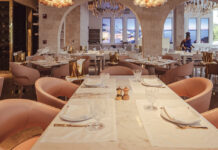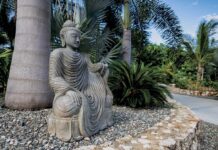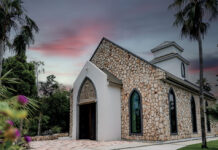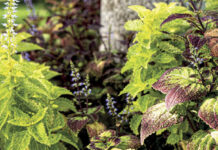But many still seem slow, or even reluctant, to adopt environmentally-friendly practices. The excuse: the islands are so small and I am only one person. I can’t possibly make a difference. But the reality is you can.
Many new arrivals to Grand Cayman find an island that seems to exist in two eras. On the surface, Grand Cayman is advanced in terms of amenities, infrastructure and prosperity. Yet, attitudes about the environment are stuck in the past with casual littering, air pollution, harmful waste management practices and widespread use of toxic pesticide the norm. To many, the problems seem overwhelming and the size of the island too inhibiting. But in the absence of governmental support, it is more important than ever to commit to an eco-friendly lifestyle. The key, as many businesses are finding, is to take it one step at a time.
The Cayman Islands Environmental Project for the Tourism Sector helps local tourism business attain Green Globe certification, an international designation for the travel and tourism industry. The public-private initiative is a joint effort between the Departments of Tourism and Environment and tourism operators.
In February, Queen Elizabeth II Botanic Park became the first botanic park in the Caribbean to gain the Green Globe nod. The Botanic Park was recognised after implementing a drip irrigation system, high-efficiency toilets to reduce water consumption and disposing of garden waste onsite.
Cobalt Coast and Compass Point dive resorts
were both Green Globe certified in April. Cobalt Coast’s green measures include the installation of dual-flush toilets, reusing old towels and staff uniform T-shirts as cleaning rags, collecting oil from compressors, and reusing kitchen cooking oil as bio-diesel.
“Many adjustments have been made to our way of operating and have become standard and well-received by the guests,” explains Arie Barendrecht, owner of Cobalt Coast Dive Resort. “As we are catering to divers mainly, we are working with a very conscientious and caring group of travellers, so our approach is natural for them.”
Although they are not certified, many other businesses in tourism and hospitality are greening their practices. The Ritz-Carlton, Grand Cayman has a dedicated energy expert to help the resort reduce its energy use and emissions.
Dragon Bay, at The Residences at The Ritz-Carlton, Grand Cayman, is firmly committed to environmentally-friendly practices with the launch of the Dragon Bay Foundation. A range of initiatives, including a recycling programme, eliminating the use of plastic bags and bottles, and cleaning local beaches, has ensured Dragon Bay is leading the way when it comes to eco responsibility.
At The Brasserie and Brasserie Market, reclaimed water from an associated water bottling business is used for dishwashers, washing machines, toilets and the garden irrigation system. The restaurants serve organic and free-trade coffee and use degradable takeout containers as well as cups, lids, cutlery and straws made from corn.
Degradable takeout food containers are also used at Hurley’s and Foster’s supermarkets. Kirk Supermarket has gone a step further by implementing sugar cane-based takeout containers, grocery bags, and cutlery. Even the reusable bags, if buried in landfill, will turn into compost within 40 days. Choosing these eco-friendly alternatives is simple and the long-term impact on the environment is priceless.
However, green living is not just about using green products. Much of the global green movement is focused on efforts to stem carbon emissions. Cayman’s electricity comes from diesel generation (technology originally developed for ships), which is far removed from the carbon-free energy provided by hydro power, wind or solar.
But renewable energy is on the horizon. A wind test site is up and running in Grand Cayman for a turbine, which could provide about 3 megawatts of power in coming years.
Local company, Electra-Tech, has long offered solar hot water panels, the perfect way to harness Cayman’s year-round sunshine. Further, Mega Systems now installs photovoltaic arrays. Arch Solar also installs photovoltaic and solar hot water panels, solar pool heating, solar outdoor lighting and wind energy systems. In addition, Arch subsidiary Smart Energy helps home and business owners become more energy efficient through energy audits. Green energy is slowly becoming more popular on island.
On a personal level, it is easy to make the change in your day to day life. It can be as simple as picking up trash, using chemical-free cleaners, or opting to walk or cycle rather than driving everywhere. Take reusable bags when you shop and use Cayman’s gorgeous weather to dry your clothes rather than wasting money and energy on a dryer.
With all these eco-friendly options at your fingertips, the future is looking greener. No measure is too small. But, only we, as individuals and as a community, can make the change.






























